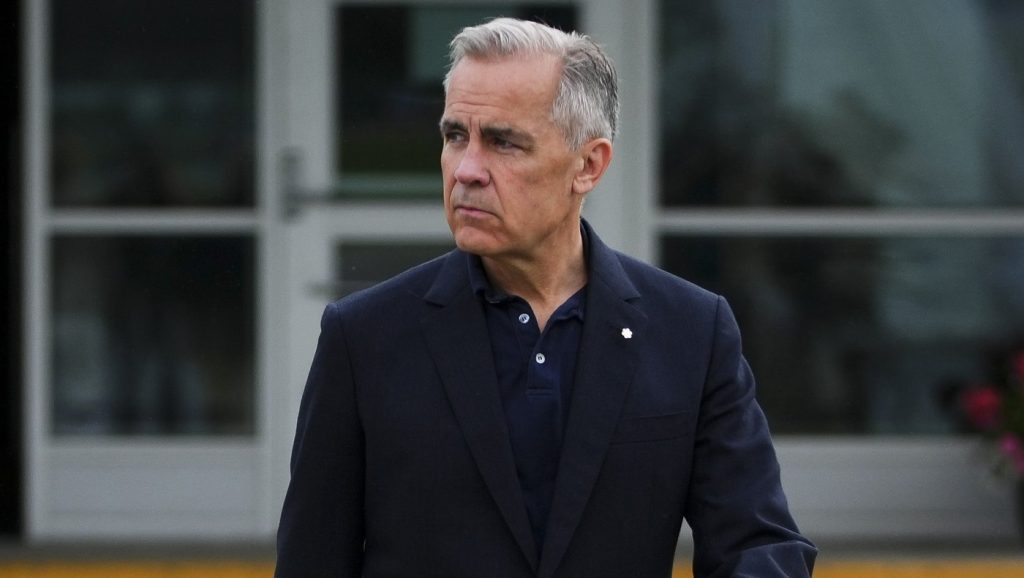OTTAWA — Prime Minister Mark Carney has called for de-escalation following the United States' military strikes against three Iranian nuclear sites conducted on June 22, 2025. Carney expressed his concerns about the highly volatile situation in the Middle East, highlighting the necessity for stability within the region. He stated via social media that the U.S. military action aimed to mitigate threats posed by Iran but emphasized the urgent need for a diplomatic resolution to the ongoing crisis.
In his post on the social media platform X, Carney noted, “Stability in the region is a priority,” and urged all parties to return to the negotiating table. His remarks resonate with a broader global consensus advocating for diplomacy while acknowledging the potential dangers of Iran's nuclear ambitions, which Carney described as a threat to international security. He reiterated Canada’s longstanding position that Iran must never be allowed to develop nuclear weapons.
Carney referenced a statement from Group of Seven (G7) leaders who had convened in Alberta to address the Iranian threat, underlining the need for a broader de-escalation in Middle Eastern conflicts, which includes seeking a ceasefire in Gaza. This context places the U.S. military intervention in alignment with Israel's ongoing attempts to undermine Iran’s nuclear program, which raises fears of an expanding regional conflict.
In the wake of the strikes, U.S. President Donald Trump claimed that Iran's key nuclear sites had been “completely and fully obliterated,” although there has been no independent assessment verifying the extent of the damage. It remains unclear whether the U.S. will continue military actions in coordination with Israel, which is already engaged in a nine-day war against Iran. Israel is also contending with Hamas, an ally of the Iranian regime, which adds a further layer of complexity to the conflict.
Iran's Foreign Minister, Abbas Araghchi, issued a warning shortly after the U.S. strikes, suggesting that the attacks would have “everlasting consequences” and asserting that Tehran “reserves all options” for retaliation. Reports from the Associated Press indicate that Iran subsequently fired a new series of missiles into Israel, which resulted in significant damage to residential areas across three cities and left at least 23 individuals wounded.
Canadian Foreign Affairs Minister Anita Anand took to social media to remind Canadians residing in the region to register with Global Affairs Canada for up-to-date information and advice on travel options. Global Affairs Canada has noted the closure of Iranian airspace due to the conflict, but indicated that land crossings into Turkey, Armenia, and Azerbaijan might be available for Canadians seeking to exit Iran. They have advised Canadians located in Israel, Gaza, the West Bank, and Iran to stay close to bomb shelters or hardened structures and away from windows for safety.
Conservative Leader Pierre Poilievre also weighed in on the situation, asserting that preventing Iran from acquiring nuclear weapons is a justification for the military actions taken by the U.S. and Israel. He called on the Canadian government to ensure the safety of Canadians and expressed hope that the Iranian populace would rise against their government to secure freedom and peace.
Canada has not advocated for regime change in Iran and lacks formal diplomatic relations with the country after the former Prime Minister Stephen Harper closed the Canadian embassy in Tehran in 2012. Additionally, Canada designated the Iranian Revolutionary Guard Corps as a terrorist entity a year earlier and enacted sanctions against numerous Iranian individuals and entities for human rights abuses and global destabilization efforts.
Recent reports, including one from the Canadian Security Intelligence Service, point to the continued threat posed by Iran, suggesting that their activities aimed at perceived enemies abroad are likely to persist, impacting Canada and its allies. Prime Minister Carney and Minister Anand are currently on their way to Europe to engage in security and defense discussions at the European Union and NATO summits.











